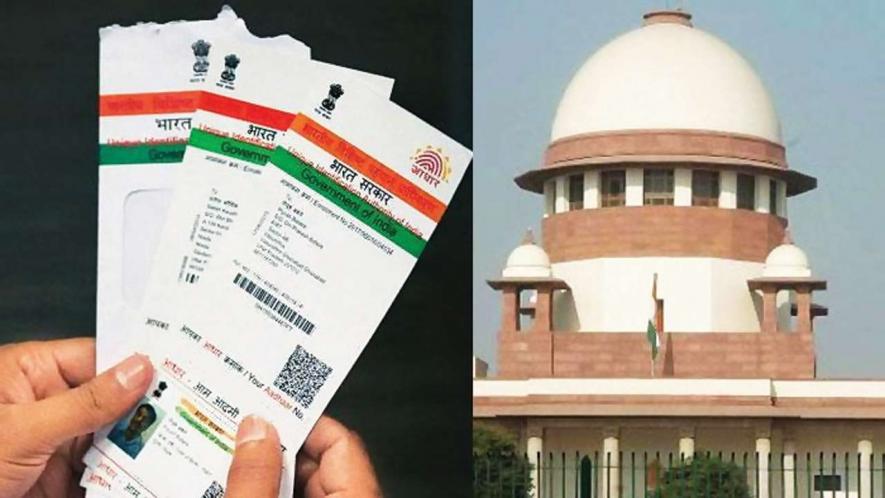Is Aadhaar Proportional in Curbing Terrorism?

Image Courtesy: WeForNews
On day 25 of the Aadhaar hearings the Attorney General (AG) continued his submissions. The AG responded to the issues raised by the Supreme Court as well as petitioners. The first pertained to the open and wide definition accorded to ‘biometric information’ under section 2(g) of the Aadhaar Act. The second was on the right to privacy. The Court also questioned some of the submissions made by the respondents regarding bank fraud and terrorism.
The Supreme Court had questioned how far the UIDAI intended to go in collecting biometric information. Section 2(g) of the Act states that ““biometric information” means photograph, finger print, Iris scan, or such other biological attributes of an individual as may be specified by regulations”. The problematic aspect is that the latter part of the definition leaves specifying the extent of what biometric information is collected to ‘regulations’. Unlike a legislation passed by Parliament, regulations are framed by departments and have the same force of law. The Court had earlier questioned whether in future the biometric information could even include blood, sweat and urine.
The AG responded by citing a US case where a similar question had arisen. The court in that case stated that the present facts did not pertain to any actual misuse of biometric information, but rather the fear of future misuse. In that regard the petition was dismissed with the court commenting that court would be available in the future if such situations arise.
On the issue of privacy, the AG referred to Mr. ‘X’ v. Hospital ‘Z’ a 1998 decision of the Supreme Court which limited an individual’s privacy in the interest of the greater public good. This decision arose when Mr. ‘X’ a HIV positive person sued Hospital ‘Z’ for violating his privacy by disclosing his HIV status to his soon to be wife Ms. ‘Y’. This action resulted in the marriage being called off. The Court however, upheld the action of the Hospital, since it had been done out of concern for Ms. ‘Y’ who could have contracted HIV, meaning that her consent to marriage was not informed consent. The other aspect is that such a marriage would have affected her right to live a healthy life as a part of Article 21.
However, the Court dismissed the submission that Aadhaar would avert bank fraud. As the Court rightly pointed out, Aadhaar can only help in the event the defrauder was an individual. In the case of frauds involving shell companies and multiple commercial entities controlled by a single person or group of persons, Aadhaar would have no effect. The Court further added that at the most Aadhaar would root out fraud in subsidies, benefits and services covered under section 7 of the Act.
The Court further questioned the proportionality of the Act referring to the submission that Aadhaar would help in curbing terrorism. The Court questioned whether the government sought to treat all citizens as if they were terrorists? This is a separate aspect of the submissions made by the respondents. On the question of proportionality of an anti-terror legislation the issue that must be kept in mind is whether the curbs on freedom outweigh the benefits. The AG mentioned the instance of suspending internet regarding the stone-pelters in Kashmir. Thus, they were unable to effectively coordinate. However, clubbing several supposed benefits of Aadhaar together displays an incoherent idea of what Aadhaar is meant to achieve. It is nothing more than a shotgun strategy, at least one pellet should find its mark.
Get the latest reports & analysis with people's perspective on Protests, movements & deep analytical videos, discussions of the current affairs in your Telegram app. Subscribe to NewsClick's Telegram channel & get Real-Time updates on stories, as they get published on our website.
























